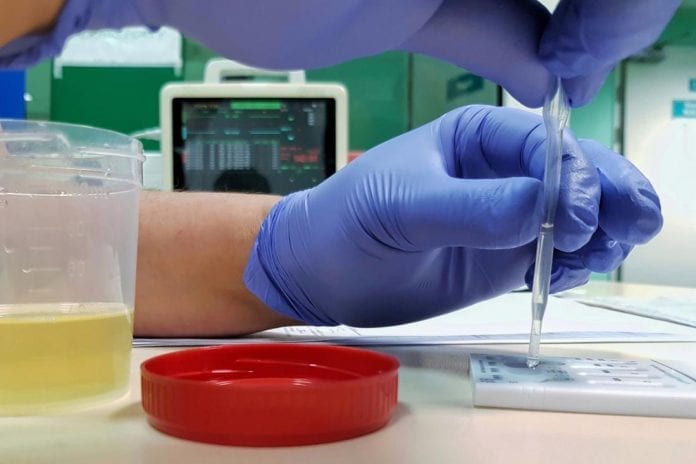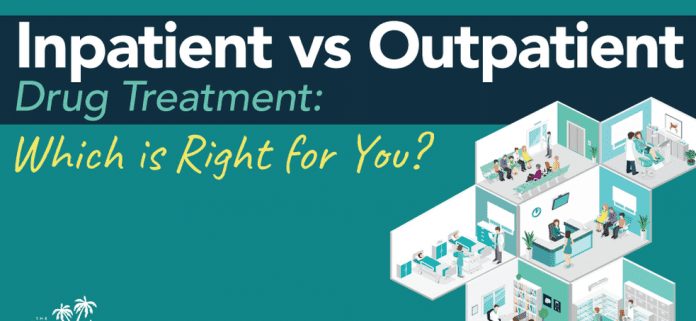If you are trying to get sober from drug addiction, you know that it will not be easy. Steering free from drugs is one of the best but most difficult decisions you can ever make. The process of becoming sober will come with withdrawal symptoms in the form of physical and mental conditions that can prove difficult to get by. Choosing the right type of rehab program to take can make or break your efforts to become whole again.
Inpatient vs outpatient treatment

There are two types of rehab to choose from, each with its pros and cons. One is the residential, also known as inpatient program. If you are battling serious addiction problems, inpatient services are best. Also, if you have minimal support at home in terms of friends, relatives, or a community, inpatient services will work best for you. Inpatient services are quite costly and you need assurance that you will come out with your addictions cured. For quality inpatient treatment, visit briteliferecovery. If your addiction is less severe, an outpatient program will do.
How doctors determine which rehab program to enroll you
Doctors will carry on some tests to determine the intensity of your drug problem. The process begins with a basic screening, where the doctors will ask you a bunch of yes or no questions which you should strive to answer truthfully if you want to receive the best medical care for your condition. Among the most basic questions you can expect to answer during a drug dependency evaluation are:
- Whether anybody has ever advised you to cut down on your drug use or quit entirely.
- Whether the use has impacted your reputation in any way.
- Whether you have tried to cut back or quit drug use but have failed or relapsed.
- Whether you have tried to switch to similar ones to try and control your consumption.
- Whether you have gotten into trouble at work, home or in any of your relationships because of a drug problem.
- Whether you sneak or hide to take your drug.
- Whether you feel uncomfortable or if there are any withdrawal symptoms you experience if you have not had your drug.
These are just a few of the questions you can expect to answer. If you answer yes to a few of the above questions, say one to three, that may not signify that you have a dependency problem. If you respond with a yes, say, to at least five of the questions, that may be an indicator of a deeper underlying problem. The doctor will determine where to score you depending on the number of questions they ask and their professional evaluation.
After the basic screening, you can undergo an assessment, which digs deeper into your drug problem. During an assessment, you could answer questions about your family and upbringing and when you first started using the drug.
Taking a drug test

Professionals at a rehab center can follow up with a drug test. Usually, drugs will be detected from your blood, urine, or saliva within eight hours of your intake. Doctors can also perform a hair test, which is more effective as it can help detect drugs which you have used in the last ninety days.
How long a drug stays in your system, however, depends on several factors such as your age, height, body fat, how often you exercise, and so on. For example, if your body has more fat, it will much harder to detect a drug. Other factors that determine how effective a drug test will be are the type of drug and the amount of drug dosage you take, your body’s metabolic rate, and your level of tolerance of the drug.
What to expect during an inpatient program
Inpatient treatment will require you to stay in the medical premises all day and night as you receive emotional and medical support until you get well. Since you will be away from home for a while, you should make prior preparations. Set a date when you plan to commence inpatient rehab and inform everyone who matters including your employee. Inquire from the health facility the personal items they require you to have during your time at the rehab center. Also, ask how often your loved ones can visit you to determine if the timing will be suitable for you.

The beauty of inpatient services
The strength of inpatient drug rehab is that patients can fully focus on recovery. The program can run from four weeks to over six months. All through, you will have psychologists, counselors, and psychiatrists attending to you individually and in groups.
Secondly, during an impatient program, doctors will perform a much safer detox and give you 24-hour support during the dangerous process. Detox is the first step of your drug rehab, aimed at eliminating drugs from your body. The process is dangerous because you are trying to get rid of a substance which has become part of our body and has possibly altered the chemistry between your body and brain. It is worse if you are highly dependent on a drug. The type of drug you are getting rid of also affects your sobriety efforts. Withdrawals symptoms associated with alcohol, heroin, and opiates are lethal.
Outpatient rehab

With an outpatient program, you will spend up to 12 hours of your time every week visiting the facility for treatment or for the doctor to monitor your progress. You will undergo sessions to educate you on drug abuse, teachings on how to cope without the drug, and group counselling sessions. The program can take from three months to over a year depending on your condition.
You need a lot of social support with outpatient rehab since you will not be under the scrutiny of medical professionals throughout the day. As part of the recovery process, therefore, you will be joining recovery groups.
While inpatient services are costlier, look beyond price as you choose the rehab type that is best for you. Your end goals should be sobriety.









